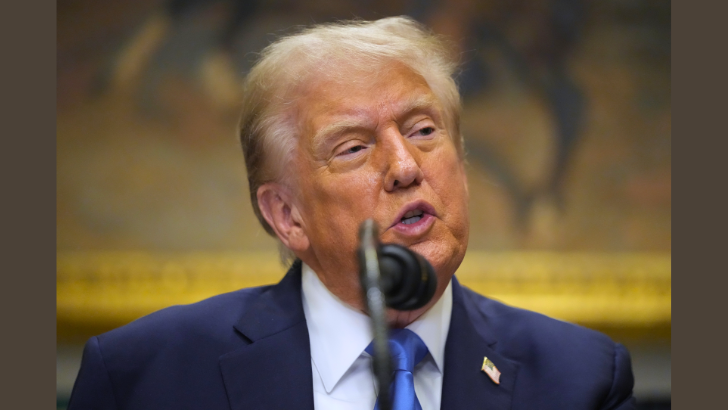What to know about Gaza peace plan agreed to by Trump, Netanyahu
The plan calls for all hostilities to immediately end. Within 72 hours, Hamas would release all hostages it still holds, living or dead.
PTI
-
The plan specifies that Palestinians will not be expelled from Gaza. (PTI)
Cairo, 30 Sept
After Israeli Prime Minister Benjamin Netanyahu threw his support behind the US peace plan for Gaza, the question now is whether Hamas will agree.
Hamas faces a bitter tradeoff — the proposal demands that
the militant group effectively surrender in return for uncertain gains. But if
it rejects the deal, the US could give Israel an even freer hand to continue
its punishing campaign in the already devastated territory.
Under the proposal, the militant group would have to disarm
in return for an end to fighting, humanitarian aid for Palestinians, and the
promise of reconstruction in Gaza — all desperately hoped for by its
population.
But the proposal has only a vague promise that, one day,
perhaps, Palestinian statehood might be possible. For the foreseeable future,
Gaza and its more than 2 million Palestinians would be put under international
control. An international security force would move in, and a “Board of Peace”
headed by Trump and former British Prime Minister Tony Blair would oversee
Gaza's administration and reconstruction. The territory would remain surrounded
by Israeli troops.
Trump and Netanyahu said they agreed on the plan Monday
after talks at the White House.
The proposal includes one provision that Netanyahu and his
hard-line government most strongly oppose: It says the Palestinian Authority
will eventually govern Gaza. But Netanyahu is likely betting that it will never
come to pass. Israel also rejects a Palestinian state.
The White House issued the text of its 20-point proposal. Here is what to know.
The ceasefire
The plan calls for all hostilities to immediately end. Within 72 hours, Hamas would release all hostages it still holds, living or dead. The militants still hold 48 hostages — 20 of whom are believed by Israel to be alive.
In return, Israel would free 250 Palestinians serving life
sentences in its prisons as well as 1,700 people detained from Gaza since the
war began, including all women and children. Israel would also hand over the
bodies of 15 Palestinians for each body of a hostage handed over.
Troop withdrawal
The plan calls for an Israeli troop withdrawal. But it would
only take place after Hamas disarms and as the international security force
deploys to fill in areas that Israeli forces leave.
Israel would also maintain a “security perimeter presence” –
a vague phrasing that could mean it would keep a buffer zone inside Gaza.
Those terms could bring pushback from Hamas, which has said
it will not release all its hostages unless it receives a “clear declaration”
that the war will end and Israel will leave Gaza completely.
The fate of Hamas and
postwar Gaza
Hamas would have no part in administering Gaza, and its
entire military infrastructure — including tunnels — would be dismantled.
Members who pledge to live peacefully would be granted amnesty, and those who
wish to leave Gaza would be allowed to.
The international security force would ensure Hamas'
disarmament and keep order. It would also train Palestinian police to take over
law enforcement. Mediator Egypt has said it is training thousands of
Palestinian police to deploy to Gaza.
Meanwhile, humanitarian aid would be allowed to flow into
Gaza in large amounts and would be run by “neutral international bodies,”
including the UN and the Red Crescent. It is unclear whether the Gaza
Humanitarian Fund, a controversial alternative food distribution system backed
by Israel and the US, would continue to operate.
The plan also specifies that Palestinians will not be
expelled from Gaza, and that there will be an international effort to rebuild
the territory for Palestinians.
In normal cases, that might not need spelling out. But
Palestinians have feared mass expulsion after both Trump and the Israeli
government spoke of pushing out Gaza's population – ostensibly in a “voluntary”
manner – and rebuilding the strip as a sort of international real estate
venture.
The interim administration of Palestinian technocrats would
run day-to-day affairs in Gaza. But it would be overseen by the “Board of
Peace.” The board would also supervise funding of reconstruction, a role that
could give it enormous power over governing Gaza since that is the biggest task
facing the territory, almost completely destroyed by Israel's campaign.
The Palestinian
Authority and statehood
During this interim administration, the Palestinian
Authority would undergo reforms so it could eventually take over governing
Gaza.
The plan has only a slight nod to the issue of statehood. It
says that if the Palestinian Authority reforms sufficiently and Gaza
redevelopment advances, “the conditions may finally be in place for a credible
pathway to Palestinian self-determination and statehood.”
The response so far
Qatar's prime minister and Egypt's intelligence chief shared
the 20-point plan Monday evening with Hamas negotiators. The Hamas negotiators
said they would review it in good faith and provide a response.
Hamas has so far rejected disarmament, saying it has a right
to resist until Israeli occupation of Palestinian lands ends.
Arab countries appear to back the outline. The governments
of Egypt, Jordan, Indonesia, Pakistan, Turkey, Qatar, Saudi Arabia, and the
United Arab Emirates issued a joint statement applauding Trump's proposal.
Netanyahu could face resistance from within his own ultra-nationalist
coalition allies.
Finance Minister Bezalel Smotrich, who is part of
Netanyahu's security cabinet, published a list of his “red lines” on X on
Monday. Top among them, he wrote, any deal must not allow involvement of the
Palestinian Authority in Gaza or allow a Palestinian state. Smotrich is one of
the more vocal members of the right-wing bloc of Netanyahu's coalition who have
previously threatened to leave the government if Netanyahu halts the war in
Gaza.
Netanyahu may see a loophole. The proposal makes PA
involvement in Gaza conditional on its completing internal reforms, which it
pledged to do, saying it welcomed Trump's plan to end the war.
But in his comments alongside Trump on Monday, Netanyahu
expressed his belief that it will never successfully do so.
Leave a Reply
Your email address will not be published. Required fields are marked *








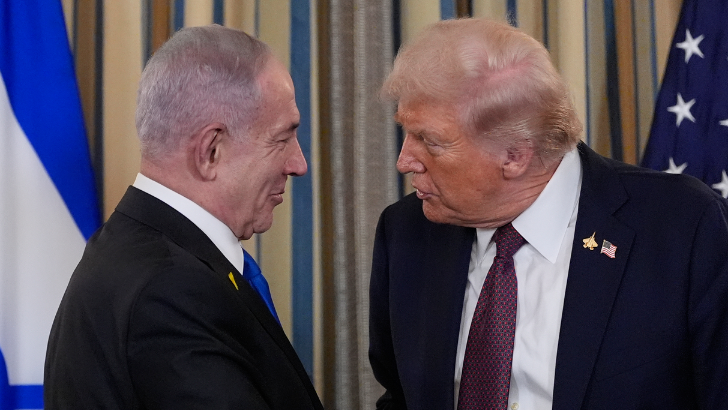

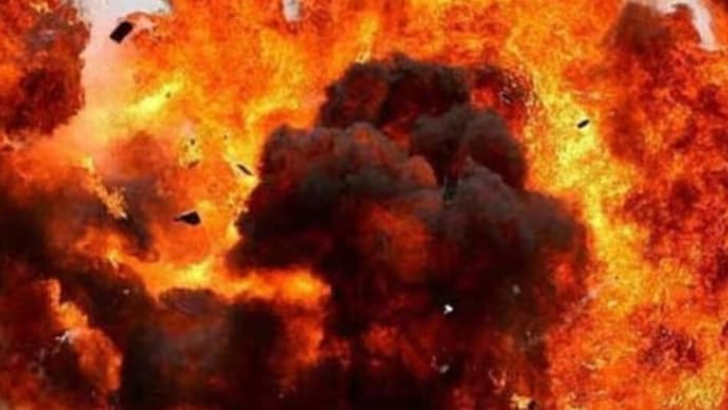
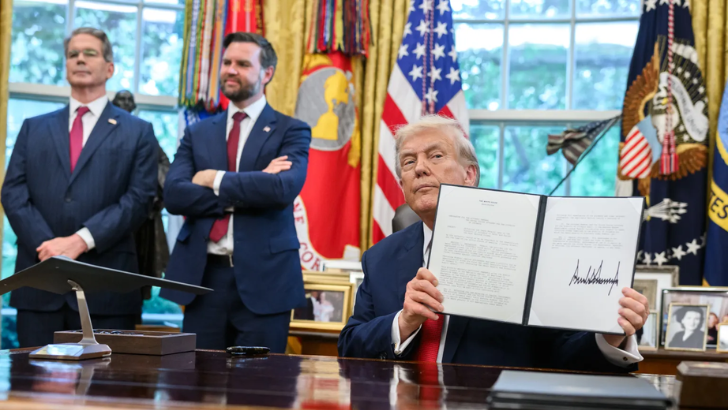
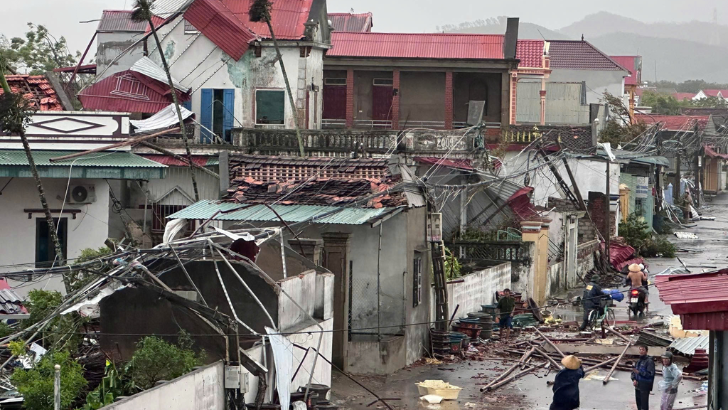
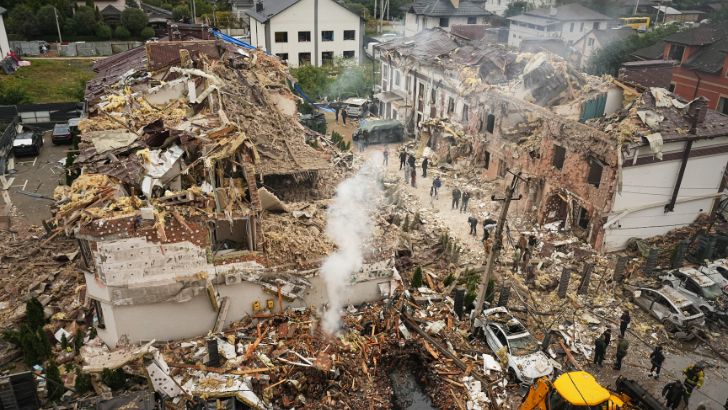
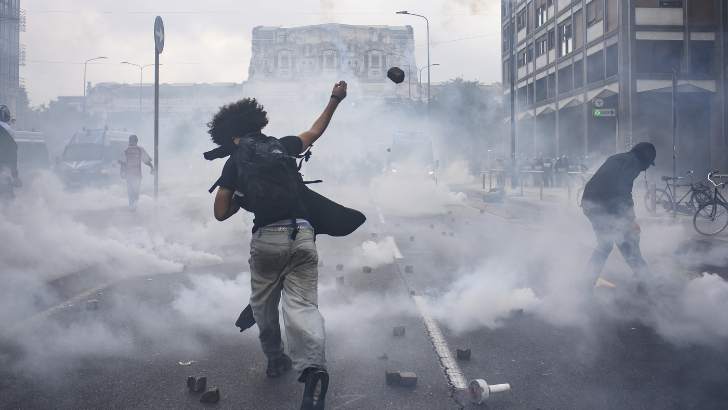
.png)
.png)
.png)
